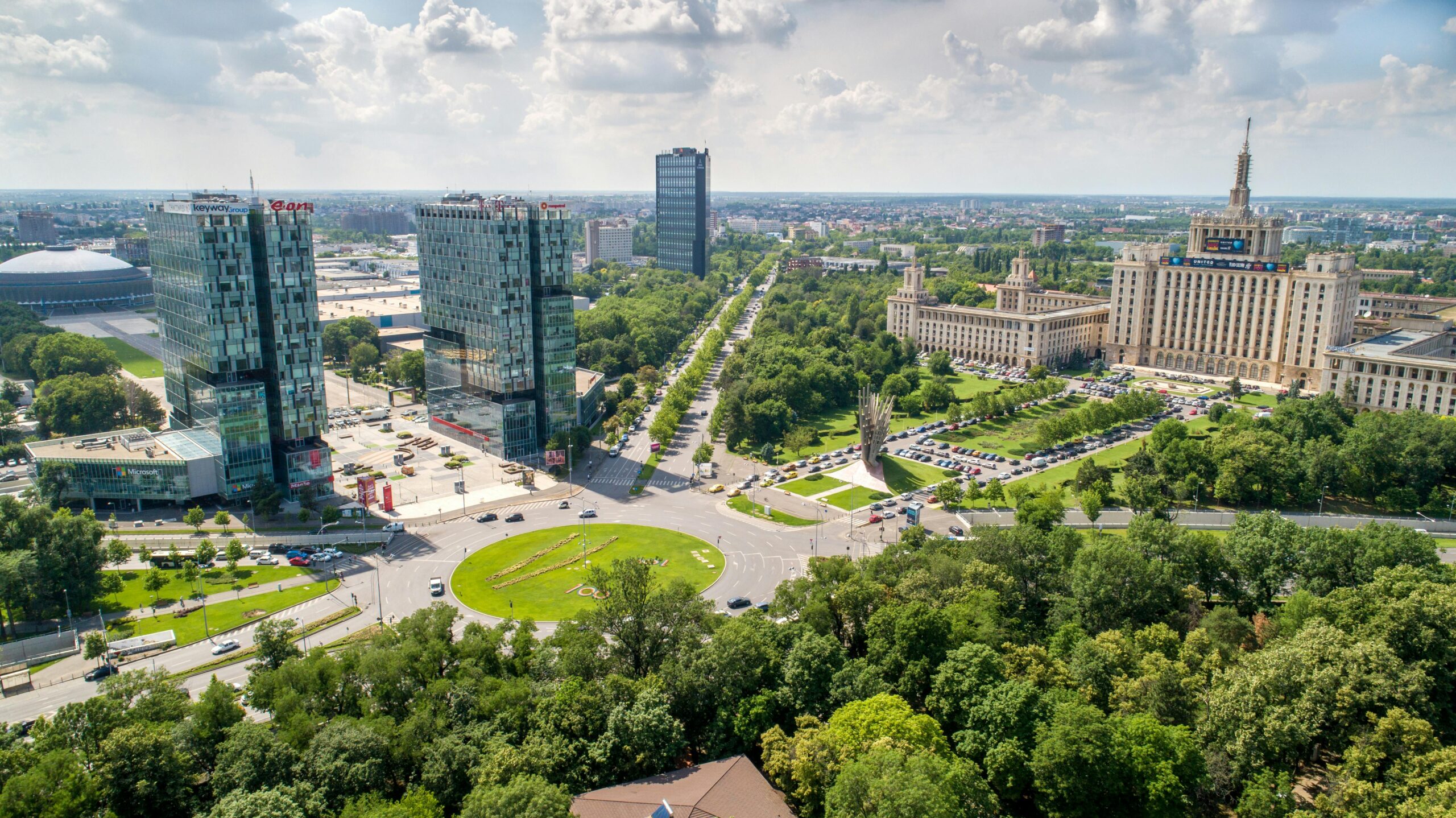Romania Investment Marketbeat H2 2025
Bucharest, January 2022: The Bucharest hotel market has the highest growth among CEE Capitals in terms of revenue per available room (RevPAR), mainly driven by occupancy, during last year as a result of lift/ease on travel related restrictions and the re-scheduled event from 2020 to 2021 (i.e. European Football Championship, concerts and other sport events). The dynamic of the market continues to rise the attention of hotel operators to expand their networks.
Cushman & Wakefield, a leading global real estate services company, presents its Hotel Operator Beat H2 2021, a survey among major international hotel operators active or interested in the CEE region, thus including the performance of the Romanian hotel market. The survey investigated the preferences, plans and developments of hotel operators, as well as their views on the impact of COVID-19 and the expectations of market recovery.
The survey, conducted in Q4 2021, was completed by senior executives representing over 30 operators with existing presence or interest to enter the CEE region. The interviewed operators represent over 730 hotels with over 121,000 rooms already operating in the CEE region, with an additional 590 proposed hotels comprising over 50,000 rooms in the pipeline.
In the CEE region, Prague, Warsaw, Budapest and Bucharest are the top-ranking cities of interest out of 20. Compared to 2020, operators generally shifted their interest towards primary locations, especially those with high-barrier-of-entry instead of secondary or tertiary markets.
Bucharest was indicated as a high or very highly attractive market for 58% of surveyed operators. It is worth mentioning that players who left the market were highly interested in re-entering Bucharest. Only a small proportion of operators did not target the capital city as a primary focus for their expansion, as their strategy is more oriented on either resort locations or Central & Western Europe.
The Romanian capital reached on average an occupancy of 32.1% in 2021. This reveals a growth of 77.7% compared to the same period in 2020, being the highest progress among CEE capitals (i.e. Bratislava, Bucharest, Budapest, Prague, Sofia and Warsaw). The strong growth of the occupancy was the result of lift/ease on travel related restrictions and the re-scheduled event from 2020 to 2021 (i.e. European Football Championship, concerts and other sport events).
Also, supported by occupancy, Bucharest`s RevPAR increased by 67.3% in 2021 compared to 2020, reveling the highest growth in RevPAR among CEE capitals. However, overall, Bucharest hotel market reached a RevPAR of EUR 20.5 (negatively impacted by the drop in ADR) seen as the third highest among CEE capitals. This is translated as the hoteliers approach a volume strategy during the recovery period, reasoning the slight discounting of the ADR.
STR discloses that the euro ADR of the Romanian capital is declining by 5.9% in 2021 compared to 2020. This trend is the result of the discounted ADR during January 2021 to May 2021, as the focus was set on volume growth. The ADR started to pick up massively from June 2021 when travel restrictions started to ease, and re-scheduled events commenced.
It is important to stress that once the travel restrictions were alleviated during 2021, although the market is still dominated by domestic demand, the international overnights started to grow with a faster rate than domestic. Also, zooming into at the nationality mix of the overnights in paid accommodations in 2021, Oxford Economics recorded a similar mix to 2019. Thus, the above-mentioned facts together with the postponing of the several hotel developments highlight the expectation that Bucharest will witness a sustainable and fast recovery of the demand.
Half of the respondents expressed their interest in Cluj-Napoca, one of Romania’s fastest developing secondary cities. Nevertheless, the growing attraction of the city triggers the interest of the big hotel chains. The majority of these respondents are internationally renowned brands from which several are not yet present in this market or Romania. Although, according to STR, the market is currently dominated by independent hotels (c. 77.9% of the current room supply), the pipeline expects two additional hotels accounting for c. 270 rooms branded under Radisson Blu and Courtyard by Marriott.
Other cities in Romania that were mentioned by the surveyed operators as their target markets (in addition to those directly listed in the survey) included Iasi, Constanta, and Brasov. It is important to highlight that Brasov is becoming quite a dynamic hotel market highlighted by the continuously growing pipeline which is expecting an additional c. 660 branded rooms (by international as well as local chains) by 2023, and recent transactions recorded (i.e. the two Rina hotels transacted in 2021 for c. EUR 4.3 million). Furthermore, by the end of 2022 Constanta will account for an additional c. 100 rooms hotel branded under Crown Plaza by IHG Hotels.
Finally, the majority of surveyed operators expect all markets in the CEE region to recover by 2024, although the leisure destinations and regional cities are anticipated to reach 2019 performance levels earlier than capital cities. This might be due to the expected earlier rebound of leisure and domestic businesses.
David Nath, Head of Hospitality, CEE & SEE Cushman & Wakefield: “Bucharest is becoming a very dynamic market within CEE region which is seen through the healthy performances recorded during the pre-covid as well as the recovery period, the liquidity visible on transaction scene (i.e. in 2021, 4 hotels sold for c. EUR 19.2) and varied pipeline ahead. Furthermore, our team has currently performed an operator selection process for one of the most intriguing players in the market (hold confidential at the moment). We were pleased to witness the high interest of the international hotel chains in the Romanian capital. Also, we perceived quite an increasing enthusiasm to enter the market from the operators which are not present yet, however, they believe in the potential of this city.”
Cushman & Wakefield Echinox is a top real estate consulting company on the local market and the exclusive affiliate of Cushman & Wakefield in Romania, owned and operated independently, with a team of over 80 professionals and collaborators offering a full range of services to investors, developers, landlords and tenants. For more information, visit www.cwechinox.com. Cushman & Wakefield, one of the global leaders in commercial real estate services, with 50,000 employees in over 60 countries and € 7.8 billion in revenue, provides asset and investment management consulting services, capital markets, leasing, properties administration, tenant representation, project management, design and evaluation services. For more information, visit www.cushmanwakefield.com





